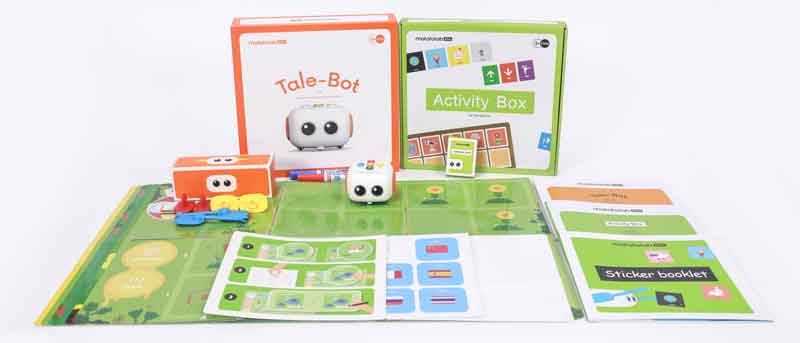The Four Important C’s For 21st Century Kids
Matatalab is a technology, education company, established in 2017, that aims to develop children’s abilities and confidence to influence the world in a positive way through innovative learning techniques and entertainment experiences. Matatalab’s coding robots have grown from strength to strength and become a much-sought after tool, for kindergarteners, elementary schools and educational institutions for their ground-breaking STEAM educational solutions. Now they have envisaged becoming the worlds leading educational company based on innovative products and STEAM for kids. Successive tangible coding products cultivate computational thinking skills through coding and perfectly amalgamate education with technology which is the need of the hour and the essence of the future. The Matatalab platform is engaging while also being entertaining as a tool for learning. Its solutions teach art, maths, science, languages along with coding in ways that inspire children to gain more knowledge.
In Dubai, Educators believe that a core set of competencies is crucial as part of skills imparted in the 21st century. These are teachable, learning foundations taught at Matatalab called the Four C’s. They are namely Communication, Collaboration, Critical thinking, and Creativity

Matatalab uses STEM learning to help students develop these essential skills and social-emotional learning which will only benefit them in the future. Matatalab solutions are a mix of tools that require screen time as well as offline play and screen free coding. The Matatalab Tale-Bot Pro, is a great example of this. It uses only the robot to teach coding along with its accessories, interactive maps and even building blocks and arms that you can add onto the robot. It even has markers so you can make the robot draw. Students love to dive into the activity with the robot sparking creativity and fun using the different materials provided. The Talebot Pro is just one of the robots that inspires creativity and critical thinking amongst the learners. It fosters the development of self-awareness as they learn to code, set goals and problem solve. Learners build relationships as they collaborate with one another to create and exchange ideas.
Children are not innately comfortable working in groups. Using the Matatalab robots, they are encouraged to work in groups to brainstorm and problem solve. They learn how to effectively listen to not only the teacher but also their peers as they collaborate. They are taught to deliver presentations of their work and communicate using digital media. Soon they are comfortable presenting their ideas over varied platforms and diverse environments.

Within the GCC, UAE and Middle East countries, group activities with Matatalab entail working together and building on productivity. Tasks usually have a leader and a speaker etc. Separate roles for each member of the group to provide structure to the working. Students learn leadership skills and responsibility. They also learn how to co-operate with the group as a whole and be flexible and open to constructive feedback.
Matatalab tangible programming language bridges the gap between the virtual and physical world of computer programming. It uses blocks or buttons to create a chain of code which ultimately leads to a program. Children are better able to absorb computer science concepts as they use their hands to build and see how it finally works. It builds a growth mindset for problem solving and refinement. Kids explore their creativity and have the courage to share their ideas openly or innovate. Through this. The students learn how to interpret the feedback and data and implement changes constructively. Piaget’s theory of constructivism believes that people produce knowledge and meaning based upon their experiences. Matatalab challenges students to become critical thinkers and helps to build the students’ 21st Century skills.






Recent Comments